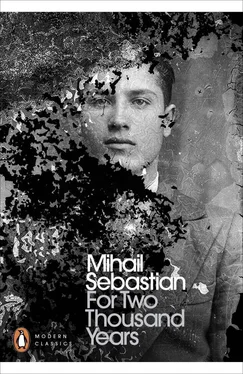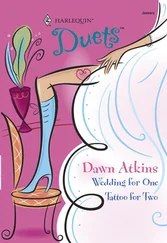I wrote back:
Dear Pierre Dogany, stay where you are. It’ll pass, you’ll see. Six years ago I went through what you’re going through now. It has passed, and one day I’ll forget. They beat you up? It’s nothing. They’ll beat you up ten times, then they’ll get tired of it. Do I laugh at you? Yes, I admit I laugh and your Hungarian fervour strikes me as comic. That doesn’t mean I don’t understand you. In your place, I’d do the same thing. In your place I did do the same thing.
Today, everything has settled down calmly and nicely. Sometimes I recall my past despairs and I don’t understand them. They seem embarrassingly childish.
Force yourself not to suffer. Don’t allow yourself to indulge your suffering. There’s a great voluptuousness in persecution and feeling yourself wronged is probably one of the proudest of private pleasures. Be vigilant and don’t indulge such pride. Try to take whatever comes with a certain good humour. Think how ridiculous we would be if we were alarmed at every shower of rain that soaked us. Believe me, what’s happening to you now, however sad it may be, is no more than a shower.
*
I’ve tried to remember where I know Arnold Max from but it just won’t come to me. I no longer have any idea of the place or the circumstances of our first meeting.
I’ve so often promised myself to limit my relations with people, but I’m incapable of controlling myself. The ease with which various acquaintances manage to crowd around me is intolerable. At first they’re neither hot nor cold nor black nor white, but eventually, without me realizing it, I become subject to suffocating demands.
One evening I sat and thought of my connections with various people, and was alarmed to realize how many of my friends are superfluous and uninteresting. You just find yourself surrounded by the dramas and farces that pop up in the wake of your indifference and one day make their demands on you. Why? How? When? It’s too late to figure it out and, in any case, too late to put it right.
You’d need to be cruelly vigilant at every moment, to pinch the shoots of all those attempts at cordiality that will eventually make you their victim. I dream of a life reduced to a few carefully chosen relationships, perhaps three or four, and only those I find strictly necessary and which serve my personal needs. The rest held at a distance, in the well-guarded zone of brief greetings in the street, from where no effusions, confessions and emotionalism can reach you. The first concession, the first weakness, is fatal.
Take Arnold Max, for example. Yesterday he spoiled my whole afternoon, dragging me up and down streets, in order to tell me of his endless problems in art and life.
‘Interesting fellow.’ But I, for one, am not a novelist and to hell with all these ‘interesting’ fellows, I’ve no use for them.
Another of those fevered types. He’s thirty-three but looks twenty-two, small, slight, with a face like that of a frightened badger, his raincoat flapping in the wind, pockets stuffed with pieces of paper (laundry receipts, verses, beginnings of poems, love letters, modernist manifestos). I’m curious what logic underlies the association of the ideas he articulates in conversation.
‘Greetings … Lucky I met you, come on Thursday evening to Costaridi’s, everyone will be there … You know, I’ve discovered a great novelist; the greatest of them all, he’s fabulous … Leon Trotsky. The episode of the dead person in Finland from Mein Leben is Dostoyevsky, pure Dostoyevsky … That imbecile Costaridi was telling me about that Moréas of his again … I can no longer breathe with the number of windbags that have sprung up in this generation. Listen, about Moréas … I’ll say it loud and clear: Tardieu’s dead. There’s a scheme involving Herriot and then there’ll be a social revolution … Stănescu told me once that his socks cost 600 lei a pair.’
He talks a tremendous amount, with a strange, nervous volubility, in which you hear a dozen thoughts, ideas and memories muttering at once. Each thought remains uncompleted. He trails them behind him like so much torn paper, snagged on random words or images.
I have the impression that he speaks from a fear of silence, from a fear of finding himself alone.
‘What do you think about when you’re alone?’
‘What do you mean, alone?’
‘Just now, for example, before you bumped into me. You were walking along the street, no? And there was no one with you. Therefore, you were alone. So, what were you thinking about?’
He stops dead for a moment, trying to remember.
‘Wait a minute … What was I thinking about … I don’t know …’
Arnold Max, the-man-whom-nothing-happens-to. He doesn’t love, he doesn’t go to the theatre, doesn’t go out, isn’t interested in people or books. There’s no woman in his life, no friends. Nothing. A desert haunted by moods, by problems.
He’s always writing, adding things, erasing. I wonder if he’s ever calmly and patiently listened to his own verses. He doesn’t have the time. He has to be writing them. His life is plunged in them, immersed in them, besieged by them. Suddenly, in mid-sentence, he pulls a piece of paper or a visiting card from some pocket, from which he reads for half an hour, with a kind of fury or enthusiasm to devour it all, poem and paper. It’s all the same to him whether you listen or not. He reads on with a certain cold illumination, ready to brave an ocean of indifference. Most of all his own indifference, which is greater than his passion for poetry, half-simulated in order to give some sense to the terrible void in which he lives and from which he flees.
It’s the poetry of a man who’s lonely, troubled, drunk on unexpected bursts of pure melody, and it is painfully simple for such a complicated man. Out of all his writings, I like the ‘Five Tales for a Small Voice’. The rest is tiresome and obscure. He has talent, I know. Everybody agrees. But I want a life without poisonings, fireworks and problems. A life of ‘good day’, ‘good evening’, ‘the bread is white’, ‘stone is hard’, ‘the poplar is tall’.
*
I glimpsed Majorie Dunton in a tram. I don’t think she saw me. And she was also here last Thursday. (Hacker from accounting brought her by motor car and I heard it from his mouth.) ‘Give her my regards, if you’re heading back together this evening.’ ‘No,’ Hacker replied, ‘I’m going back alone. Mrs Dunton is spending the night in Bucharest.’
On Friday, in the workshop, I dropped it on Dronţu. ‘Did you sleep well last night, Marin?’
Stupid question.
*
Sami Winkler called by to see me at the workshop, to ask me for a letter of recommendation for Ralph T. Rice.
‘Are you looking to be a miner?’
‘It’s not for me. It’s for some boys we’re training for going to Palestine. And they need a couple of months’ experience in a refinery. I thought you might be able to smooth the way in the head office. Unpaid work, you understand.’
I brought Winkler round to Piaţa Rosetti and introduced him to old Ralph. I think he’s going to do it.
‘I hope you don’t mind, Winkler, and excuse me for asking. Did you complete your thesis?’
‘I abandoned it a long time ago. It no longer interests me. I’ll stay another two or three years, then I’m leaving. I’ll be a farmer in some colony.’
‘Why a farmer? Don’t they need doctors over there?’
‘Doctors perhaps, but not diplomas. I’ll be working the land somewhere, in a colony, and when a doctor’s needed I’ll act as a doctor. I still know how to do a bandage.’
Winkler means what he says. For the last four years he’s worked from spring to autumn on a farm in Bessarabia organized by Zionists to train pioneers.
Читать дальше












